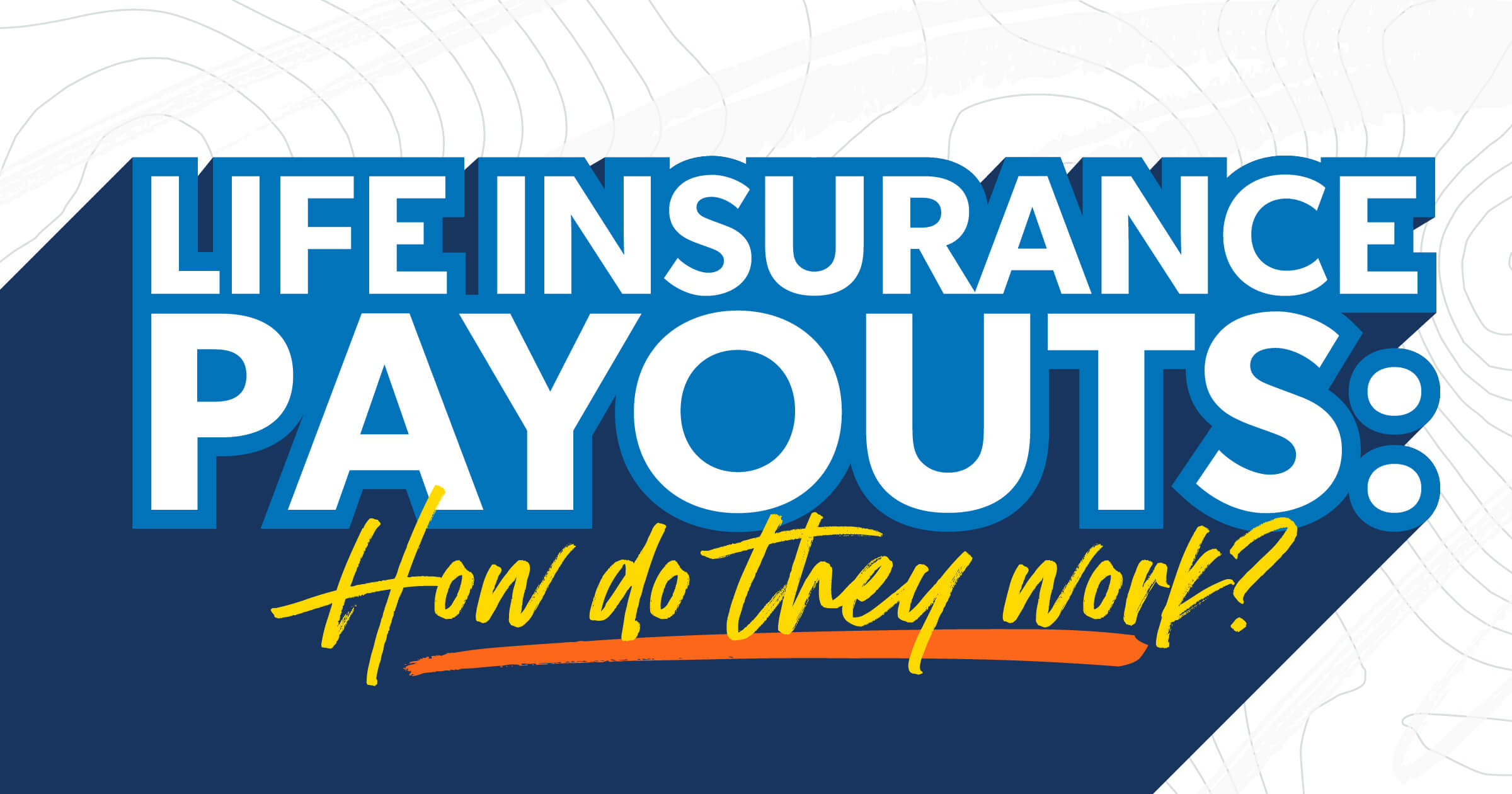Home>Finance>How To Pay For Funeral Expenses Without Life Insurance


Finance
How To Pay For Funeral Expenses Without Life Insurance
Published: October 16, 2023
Learn how to finance funeral expenses without relying on life insurance. Discover alternative options for paying for funeral costs.
(Many of the links in this article redirect to a specific reviewed product. Your purchase of these products through affiliate links helps to generate commission for LiveWell, at no extra cost. Learn more)
Table of Contents
- Introduction
- Understanding the Cost of Funeral Expenses
- Exploring Alternative Sources of Funding
- Funeral Financing Options
- Crowdfunding and Fundraising for Funeral Expenses
- Preplanning and Prepaying for Funeral Costs
- Government Assistance Programs for Funeral Expenses
- Seeking Support from Nonprofit Organizations
- Negotiating Payment Plans with Funeral Service Providers
- Conclusion
Introduction
Dealing with the loss of a loved one is an emotional and challenging time, and the financial burden of funeral expenses can add additional stress to an already difficult situation. While many people rely on life insurance to cover these costs, not everyone has this type of coverage. If you find yourself in a situation where you need to pay for funeral expenses without life insurance, it’s important to know that there are alternative sources of funding available.
In this article, we will explore various options for financing funeral expenses and provide you with insights on how to navigate this process. From understanding the cost of funeral expenses to government assistance programs and alternative financing options like crowdfunding, we’ll guide you through the various avenues that may be available to you.
It’s crucial to remember that everyone’s financial situation is unique, and there is no one-size-fits-all solution. However, by exploring these different options and understanding what resources are available, you can make informed decisions and find the best way to pay for funeral expenses that aligns with your means and circumstances.
Whether you’re planning ahead for funeral costs or dealing with an unexpected loss, this guide will help you navigate the financial aspect of arranging a meaningful farewell for your loved one.
Understanding the Cost of Funeral Expenses
Before exploring the various funding options for funeral expenses, it’s important to have a clear understanding of the costs involved. Funeral expenses can vary significantly depending on factors such as location, type of service, and personal preferences.
The main components of funeral expenses typically include:
- Funeral Home Services: This includes the professional services provided by the funeral home, such as body preparation, embalming, coordinating the funeral service, and obtaining necessary permits and death certificates.
- Casket or Urn: The cost of a casket or urn will depend on the materials used, design, and craftsmanship.
- Transportation: Costs associated with transporting the deceased, including a hearse for transportation to the funeral service location and cemetery.
- Burial or Cremation: The cost of burying the deceased or cremation services, including the purchase of a burial plot or cremation charges.
- Memorial Service: Expenses related to holding a memorial service or funeral ceremony, such as venue rental, flowers, music, and catering.
- Grave Marker or Headstone: If a burial is chosen, additional costs may include the purchase of a grave marker or headstone.
While prices can vary greatly, the average cost of a funeral in the United States typically ranges from $7,000 to $12,000, although it can be significantly higher depending on choices made and the location. It is essential to keep in mind that these costs do not include any additional expenses associated with obituary notices, flowers, transportation for family and friends, or other personalized elements of the funeral.
Having a clear understanding of the various components and potential costs will help you plan and seek appropriate funding options to cover the expenses. Regardless of your financial situation, there are alternatives available to help ease the financial burden and ensure a meaningful and dignified farewell for your loved one.
Exploring Alternative Sources of Funding
When faced with the challenge of paying for funeral expenses without life insurance, it’s essential to explore alternative sources of funding. Here are some options to consider:
- Savings and Personal Funds: If you have savings set aside or personal funds available, consider using them to cover the funeral expenses. While it may require depleting your savings, it can provide immediate access to the funds needed.
- Family and Friends: Reach out to family members and close friends who may be willing and able to contribute towards the funeral expenses. Consider organizing a group contribution effort to collectively gather the necessary funds.
- Employer Benefits: Check if your loved one had any employee benefits, such as a death benefit or funeral expense assistance, through their employer. Contact the human resources department for more information on available benefits.
- Insurance Policies: While life insurance is a common source of funding for funeral expenses, there may be other types of insurance policies that provide coverage. Look into health insurance, accidental death and dismemberment policies, or veteran’s benefits that may cover funeral costs.
- Personal Loans: Consider applying for a personal loan from a financial institution. Compare interest rates, repayment terms, and fees to find the most suitable option for your circumstances.
- Credit Cards: As a last resort, you may use credit cards to cover funeral expenses. Be mindful of high interest rates and ensure you can comfortably manage the monthly payments.
It’s important to note that while exploring these alternative funding options, it’s crucial to assess your ability to repay any borrowed funds. Carefully consider the impact on your financial situation and determine if the repayment terms are feasible for you.
By considering these alternative sources of funding, you can find a solution that works for your specific situation and helps alleviate the financial burden associated with funeral expenses.
Funeral Financing Options
Funeral financing options are specifically designed to help individuals cover the costs associated with funeral arrangements. These options can provide immediate access to funds while allowing for manageable repayment terms. Here are some funeral financing options to consider:
- Funeral Loans: Some financial institutions offer funeral loans specifically designed for funeral expenses. These loans typically have lower interest rates and longer repayment periods compared to traditional personal loans, making them a feasible option for many individuals.
- Line of Credit: A line of credit can provide you with the flexibility to access funds as needed to cover funeral expenses. This option allows you to borrow up to a predetermined limit and only pay interest on the amount you use.
- Home Equity Line of Credit (HELOC): If you have equity in your home, you may be able to secure a HELOC to cover funeral expenses. This option generally offers low-interest rates, but it’s important to consider the potential risks, such as the potential impact on your home if you default on the loan.
- Credit Union Loans: Credit unions often provide more favorable financing terms compared to traditional banks. They may offer funeral loan programs or personal loans specifically tailored to cover funeral expenses.
- Funeral Insurance Policies: Funeral insurance policies, also known as burial insurance or final expense insurance, are specifically designed to cover funeral expenses. These policies typically have lower coverage amounts compared to traditional life insurance and are more accessible for individuals who may have difficulty qualifying for other types of insurance.
Prior to applying for any funeral financing option, it’s essential to compare interest rates, terms, and repayment options. Ensure that you understand all the fees and conditions associated with the financing, and determine if it aligns with your financial capabilities.
Remember to consider funeral financing options as a means to bridge the immediate gap in funding and carefully manage repayment terms to avoid any undue financial strain.
Crowdfunding and Fundraising for Funeral Expenses
Crowdfunding and fundraising have become popular options for covering various expenses, including funeral costs. These platforms provide individuals with the opportunity to reach out to a larger community, allowing friends, family, and even strangers to contribute towards the funeral expenses. Here’s how you can utilize crowdfunding and fundraising for funeral expenses:
Crowdfunding Platforms:
There are several crowdfunding platforms such as GoFundMe, Kickstarter, and Indiegogo that allow you to create a campaign specifically to collect funds for funeral expenses. When setting up a crowdfunding campaign, it’s essential to create a compelling story that highlights the significance of the funeral and the financial challenges you’re facing. Share the campaign on social media channels and engage with potential donors by providing updates and expressing gratitude for their support.
Online Fundraising:
In addition to crowdfunding platforms, you can also utilize online fundraising tools to collect donations for funeral expenses. Websites like YouCaring, GiveForward, and Fundly provide options to create personalized fundraising pages to share with your network. These pages can include information about the deceased, the funeral arrangements, and a clear explanation of how the funds will be used.
Local Community Support:
Don’t overlook the power of your local community in providing support during difficult times. Reach out to local groups, religious organizations, and community centers to share your situation and ask for assistance in organizing fundraising events or gathering donations. Local businesses and service clubs may also be willing to contribute towards the funeral expenses.
Family and Friends Contributions:
Lastly, consider coordinating efforts with family and friends to organize in-person fundraisers, such as bake sales, car washes, or garage sales, to raise funds for the funeral expenses. These events not only generate financial support but also provide an opportunity for the community to come together and show their solidarity.
When utilizing crowdfunding and fundraising options, it’s important to be transparent about your financial needs and provide regular updates to donors. Express your gratitude for their contributions and keep them informed about how the funds are being used.
Remember, crowdfunding and fundraising are effective tools for gathering financial support, but success depends on actively engaging and interacting with your network and community.
Preplanning and Prepaying for Funeral Costs
One effective way to ensure that funeral expenses are covered is by preplanning and prepaying for funeral costs. By taking proactive measures ahead of time, you can alleviate the financial burden on your loved ones and have peace of mind. Here are some important considerations for preplanning and prepaying for funeral costs:
Research Funeral Service Providers:
Start by researching different funeral service providers and compare their offerings, pricing, and reputation. Look for providers who are transparent about their fees and willing to discuss preplanning and prepayment options with you.
Discuss Your Wishes with Family:
Have open and honest conversations with your family about your funeral preferences and the importance of preplanning. This way, they’ll understand your wishes and be prepared to carry them out when the time comes.
Choose a Prepayment Method:
Once you’ve selected a funeral service provider, discuss the available prepayment options. These may include setting up a trust, purchasing a funeral insurance policy, or entering into a prepaid funeral contract with the provider. Each option has its own advantages and considerations, so it’s crucial to understand the terms and conditions before making a decision.
Review the Prepayment Agreement:
If you decide to prepay for your funeral expenses, carefully review the prepayment agreement. Pay close attention to the services and items included, any cancellation or transfer policies, and whether the funds are held in a secure account or trust. It’s also important to understand what happens if the funeral provider goes out of business or if you need to relocate.
Consider Funeral Insurance Policies:
Funeral insurance policies, also known as burial or final expense insurance, are designed to cover funeral costs. These policies provide a predetermined payout that can be used to cover funeral expenses when the time comes. However, it’s important to compare policies, coverage amounts, and premiums to ensure you choose the most suitable option for your needs.
Share Preplanning Details:
Once you’ve completed your preplanning and prepayment process, make sure to share the details with your family and loved ones. Provide them with copies of the agreements, contact information for the funeral service provider, and any necessary documentation.
Preplanning and prepaying for funeral costs not only relieves financial stress but also ensures that your wishes are respected and carried out. By taking these proactive steps, you can provide your loved ones with a clear plan and alleviate their burden during an already challenging time.
Government Assistance Programs for Funeral Expenses
In certain situations, individuals and families may be eligible for government assistance programs that can help cover funeral expenses. These programs aim to provide support to those who are financially unable to afford the costs associated with a funeral. Here are some government assistance programs to consider:
Social Security Administration (SSA) Death Benefits:
The Social Security Administration offers a one-time lump-sum death benefit of $255 to surviving spouses or dependent children of a deceased individual who had paid into Social Security. While this may not cover the entire funeral expense, it can help offset some of the costs.
State and County Assistance Programs:
Many states and counties have programs in place to assist low-income individuals and families with funeral expenses. These programs vary by location and may have specific eligibility criteria. Contact your local Department of Social Services or Human Services to inquire about available assistance options in your area.
Veterans’ Benefits:
If the deceased was a veteran, they may be eligible for burial benefits provided by the Department of Veterans Affairs (VA). These benefits may include a burial plot in a national cemetery, a burial allowance, a grave marker or headstone, and reimbursement for some funeral-related expenses.
Medicaid Funeral Assistance:
Medicaid, a state and federally funded program that provides healthcare assistance to low-income individuals and families, may also offer limited funeral assistance. Eligibility requirements and coverage amounts vary by state, so it’s important to contact your local Medicaid office for specific information.
Crime Victim Compensation Programs:
In cases where a death occurs as a result of a crime, there may be victim compensation programs available. These programs can help with funeral expenses, counseling services, and other financial support for the victim’s family. Contact your state’s Crime Victim Compensation program for more information.
It’s important to note that each government assistance program has specific eligibility requirements and may only cover certain aspects of funeral expenses. It is advisable to reach out to the respective agencies or departments early in the funeral planning process to understand the available assistance and necessary documentation.
In addition to these programs, some local charitable organizations and nonprofit groups may also offer assistance with funeral expenses. Research and reach out to these organizations in your community to see if they provide any financial support for funeral costs.
By exploring government assistance programs and researching local resources, you may find financial assistance options that help lighten the burden of funeral expenses during a difficult time.
Seeking Support from Nonprofit Organizations
In times of financial need, nonprofit organizations can be an invaluable resource for individuals and families seeking assistance with funeral expenses. These organizations are dedicated to helping those in need and may have specific programs or funds allocated for funeral support. Here’s how you can seek support from nonprofit organizations:
Research Local Nonprofit Organizations:
Start by researching nonprofit organizations in your community that provide financial assistance for funeral expenses. Look for organizations that specialize in bereavement support, family services, or those focused on helping individuals facing financial hardship.
Local Churches and Religious Organizations:
Your local church or religious organization may have funds or resources available to assist with funeral costs. Reach out to the clergy or community leaders to inquire about any programs or assistance they may offer to help alleviate the financial burden.
Bereavement Support Groups:
Bereavement support groups often have connections to nonprofit organizations that offer financial assistance for funeral expenses. These groups can provide you with valuable information and resources to help navigate the process of seeking financial help during a difficult time.
Fraternal and Service Organizations:
Fraternities, sororities, and service organizations often have benevolent funds or programs that provide financial assistance to members in times of need. If you or your loved one is a member of such an organization, reach out to their headquarters or local chapter to inquire about possible assistance.
National and Regional Nonprofit Organizations:
There are also national and regional nonprofit organizations that offer financial assistance for funeral expenses. Research and reach out to organizations such as the Funeral Service Foundation, Final Farewell, or the United Way, as they may have resources or programs available to support you during this difficult time.
Apply for Grants or Financial Aid:
Some nonprofit organizations provide grants or financial aid specifically for funeral expenses. Look for organizations that offer grants and scholarships designed to assist individuals and families in covering end-of-life costs. Carefully review their eligibility criteria and application process to increase your chances of receiving financial support.
When seeking support from nonprofit organizations, it’s important to reach out as early as possible to understand their application process, eligibility requirements, and any documentation needed. Be prepared to provide details about your financial situation and the specific assistance you are seeking.
Remember that nonprofit organizations are often run by volunteers and rely on limited funds, so there may be limitations on the amount of financial assistance they can provide. It’s advisable to investigate multiple nonprofit organizations and explore other funding options concurrently to increase your chances of receiving the necessary support.
Negotiating Payment Plans with Funeral Service Providers
If you’re facing difficulty in covering funeral expenses, one possible solution is to negotiate a payment plan with the funeral service provider. Many funeral homes are open to working with families to find manageable payment options. Here are some steps you can take to negotiate a payment plan:
Discuss Your Financial Situation:
Start by having an open and honest conversation with the funeral service provider about your financial limitations. Explain your circumstances and express your willingness to pay but in a way that aligns with your financial capabilities.
Request a Detailed Price Breakdown:
Ask the funeral service provider to provide a detailed breakdown of all the expenses. This will help you better understand the costs and identify areas where adjustments can be made to accommodate your budget.
Arrange for Partial Payments:
If paying the full amount upfront is not feasible, propose a partial payment plan. Discuss the possibility of paying a certain amount upfront and spreading the remaining balance over a mutually agreed-upon period. Be prepared to provide a timeline for when you can make the payments.
Explore Interest-Free Options:
Inquire about interest-free payment plans that the funeral service provider may offer. Some providers are willing to work out payment arrangements that don’t include additional interest or fees, making it easier for you to manage the payments.
Consider Extended Repayment Terms:
If you need more time to repay the costs, discuss the possibility of extending the repayment period. This could involve monthly installments over an extended period, allowing you to make smaller, more manageable payments over time.
Get the Agreement in Writing:
Once you and the funeral service provider have reached an agreement on the payment plan, ensure that you have the agreement in writing. This will protect both parties and provide a clear record of the terms and conditions agreed upon.
Stick to the Agreed Payment Schedule:
Once the payment plan has been established, make it a priority to stick to the agreed-upon payment schedule. This will demonstrate your commitment and reliability, further strengthening the relationship with the funeral service provider.
Remember, funeral service providers understand the financial challenges many families face and are often willing to work with you to find a reasonable solution. It’s important to approach the negotiation process respectfully and be open to finding mutually beneficial terms.
Negotiating a payment plan with the funeral service provider can provide much-needed financial relief during a difficult time, ensuring that your loved one receives a dignified farewell without placing excessive strain on your finances.
Conclusion
Dealing with the financial aspects of arranging a funeral can be overwhelming, especially when you don’t have life insurance coverage. However, there are alternative sources of funding and support available to help alleviate the burden of funeral expenses.
Understanding the cost of funeral expenses and exploring various options is crucial in finding a solution that works for your unique situation. Whether it’s utilizing personal funds, seeking help from family and friends, or exploring government assistance programs, there are avenues to consider.
Funeral financing options, such as loans or lines of credit, can provide immediate access to funds while allowing for manageable repayment terms. Crowdfunding and fundraising platforms offer an opportunity to reach out to a larger community for support. Preplanning and prepaying for funeral costs can provide peace of mind and relieve loved ones from the financial burden in the future.
Government assistance programs and nonprofit organizations can also offer financial support to those who qualify. By researching available resources, you can identify programs that may provide assistance for funeral expenses.
It’s important to remember that everyone’s financial situation is unique, and there is no one-size-fits-all solution. It’s crucial to assess your own financial capabilities and choose the option that aligns with your circumstances.
In conclusion, while navigating the process of paying for funeral expenses without life insurance can be challenging, there are alternatives available to help ease the financial burden. Through careful planning, exploring funding options, and seeking support from various sources, it is possible to arrange a dignified and meaningful farewell for your loved one while managing your finances responsibly.
Remember to address the financial aspect of funeral planning with empathy and understanding, and seek assistance when needed. With the right approach and resources, you can ensure that the funeral process is not only a time of mourning but also an opportunity to honor the life and memory of your loved one.














